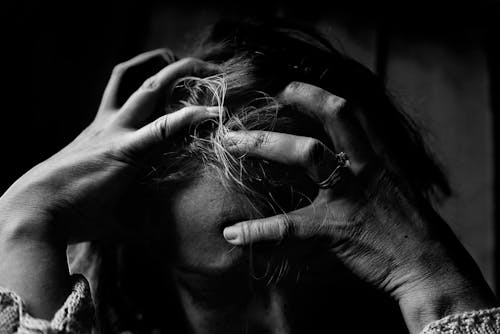What Is Depression?

Depression is a common form of mental health that causes people to experience depression, loss of happiness or happiness, feelings of guilt or insignificance, sleep deprivation or sleep deprivation. of desire, low energy and emotional instability.
Depression causes feelings of sadness and / or loss of interest in activities once they are enjoying it.It can lead to a variety of emotional and physical problems and decrease a person's ability to work at work and at home.
Depression is the leading cause of disability worldwide, according to the World Health Organization (WHO). It can affect adults, teenagers and children.
Conditions that can worsen as a result of depression include:
- Arthritus
- Asthma
- Cardiovascular disease
- Cancer
- Diabetes
- Obsity
It is important to realize that feeling is sometimes a normal part of life. Everyone is going through sad and upsetting events. But if you feel low or hopeless on a regular basis, you may be dealing with depression.
Depression is considered a serious medical condition that can worsen without proper treatment. Those seeking treatment often notice improvements in symptoms in just a few weeks.
Symptoms of depression can range from mild to severe and may include:
- Fatigue and loss of energy
- Sadness that does not disappear
- Loss of self-confidence and self-esteem
- Difficulty concentrating
- Not being able to enjoy things that are usually pleasantly interesting
- You feel restless all the time
- Avoid other people, sometimes even close friends
- Feelings of helplessness and despair
- Sleep problems - difficulty sleeping or waking up much earlier than usual
- Very strong feelings of guilt or worthlessness
- It is difficult to work at work / college / school
- Loss of appetite
- Loss of sexual challenges and / or sexual problems
- Pain and physical pain
- Thinking of suicide and death
- Self harm
Symptoms of depression can range in severity, from mild to moderate to severe depression. If you have symptoms of depression for most of the day - every day - more than two weeks, you should seek the help of your doctor.
Causes of depression
The medical community is not fully aware of the causes of depression. There are many possible causes and sometimes several factors combine to trigger symptoms.
Factors that may play a role include:
- Additional conditions such as bipolar disorder
- Psychological and social factors
- Environmental factors
- Changes in the brain's neurotransmitter level
Treatment of depression
It can be difficult to live with depression, but treatment can help improve your quality of life. Talk to your healthcare provider about possible options.
You can successfully treat your symptoms with a single form of treatment, or you may find that the combination of treatments works best.
Depression can be treated and the treatment of symptoms usually consists of three components:
Support
:
The initiative could be based on a discussion of practical solutions and possible reasons for educating family members.Psychotherapy:
Drug treatment: A doctor may prescribe antidepressants.
It is common to combine medical treatments and life therapies, including the following:
Medications
Your healthcare provider may prescribe:
There are benefits and potential risks associated with all kinds of medications used to treat depression.
- Antidepressants
- Antianxiety
- Antipsychotic medications
A person should take these medicines only as prescribed by their doctor. Some medications can take a while to make an impact. By stopping the medicine, a person cannot experience the benefits it could offer.
Some people stop taking medication after their symptoms improve, but this can lead to a recurrence.
Pick up any doctor about antidepressants, including any intention to stop taking the medication.
Psychotherapy
Talking to a therapist can help you learn skills to deal with negative feelings. You can also benefit from family or group therapy sessions.
Light therapy
Exposure to white light doses can help you adjust your mood and improve your symptoms of depression. Mild therapy is commonly used in seasonal affective disorder, which is now called major depressive disorder with a seasonal pattern.
Alternative therapies
Ask your healthcare provider about acupuncture or meditation.Antibiotics are also used in the treatment of depression.
Before taking any supplement or supplementing it with a prescription, consult your pharmacist as some dietary supplements and other medications may respond. Some dietary supplements may exacerbate or reduce the effectiveness of the medication.
Exercise
Physical activities increase endorphin levels and stimulate the norepinephrine neurotransmitter, which is linked to mood. Aim for 30 minutes of training 3 to 5 days a week. Exercise can increase the production of endorphins in the body, hormones that increase mood.
Avoid alcohol and drugs
By Using the wrong drugs can make you feel better for a while. But in the long run, these substances can worsen the symptoms of depression and anxiety.
Take care of yourself
You can also manage anxiety symptoms by taking care of yourself.This includes getting plenty of sleep, eating a healthy diet, avoiding negative people, and engaging in enjoyable activities.
Sometimes depression does not respond to medication. Your healthcare provider may recommend other treatment options if your symptoms do not improve.
These include electroconvulsive therapy (ECT) or repetitive transcranial magnetic stimulation (RTMS) to treat depression and improve mood.




0 Comments: